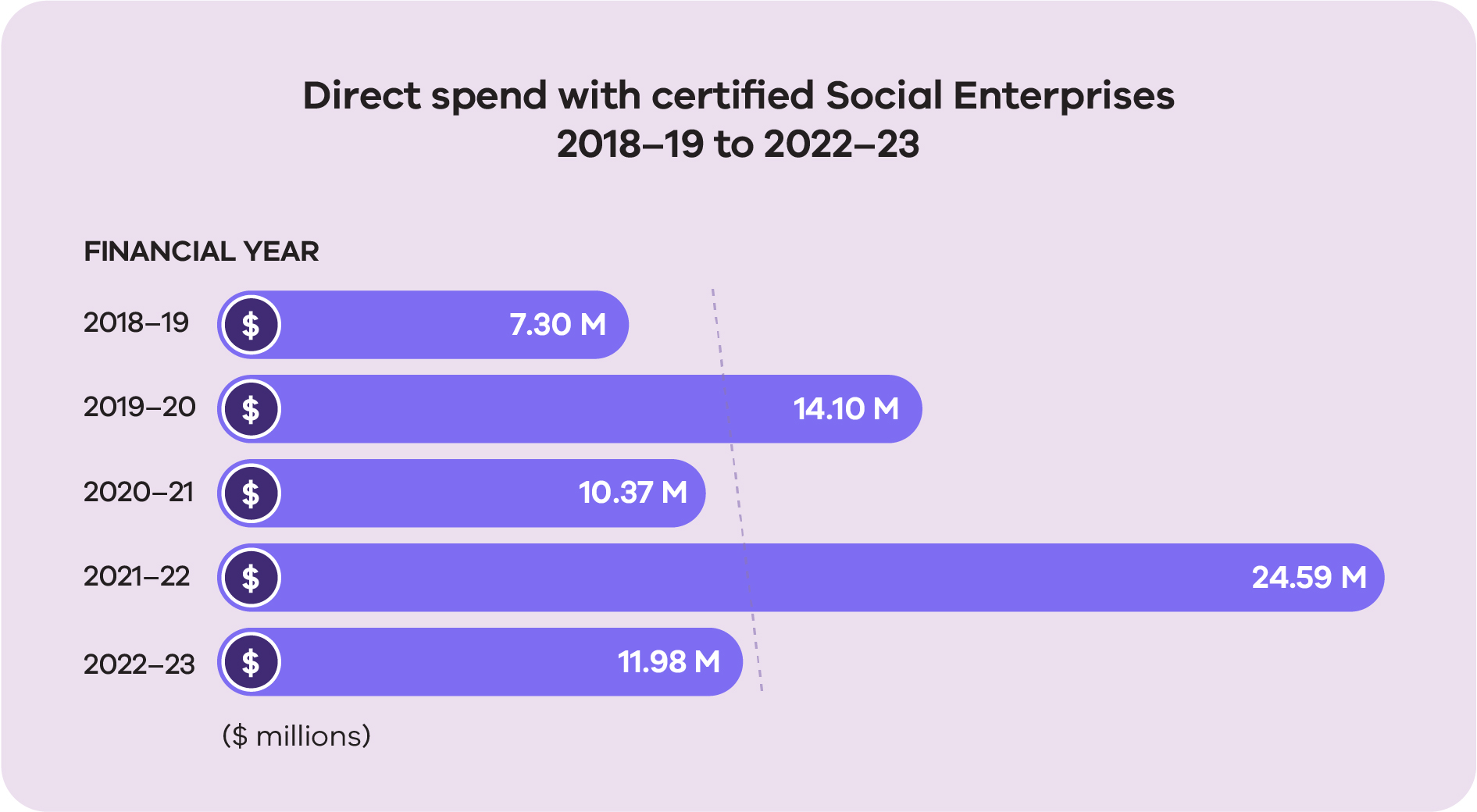The Sustainable Victorian social enterprise and Aboriginal business sectors objective directs spending toward social enterprises and Aboriginal businesses, helping ensure they remain financially sustainable and to support vibrant and inclusive economic growth.
Up until 2022–23, there was an upwards trend for direct spend with certified social enterprises. In 2022–23 reduction in expenditure with certified social enterprises is primarily attributed to a refinement in the reporting criteria for identifying social benefit suppliers in scope for the reporting period. For further information on the refinement to reporting criteria see: Continuous improvement of policy implementation.
Graph 4: Direct spend with certified Social Enterprises between 2018–19 and 2022–2315
For Direct Spend with verified Aboriginal Businesses between 2018–19 and 2022–23, see: Opportunities for Aboriginal Victorians.
To read more about the impact of this objective, see Social Procurement: Case studies, Sustainable Victorian social enterprise and Aboriginal business sectors.
15: In 2018-19, data for this cohort was collected between January and June 2019 only.
Updated


